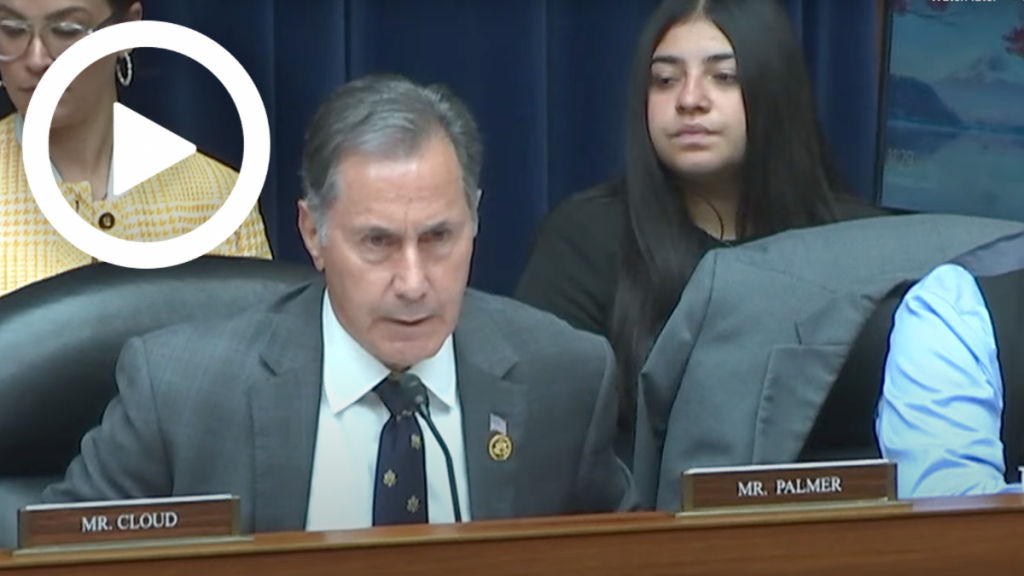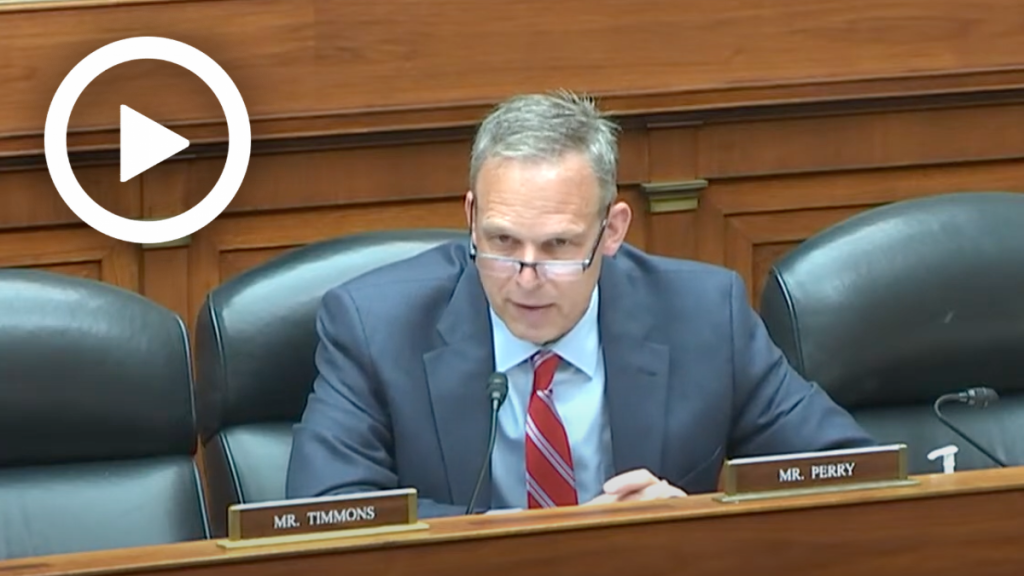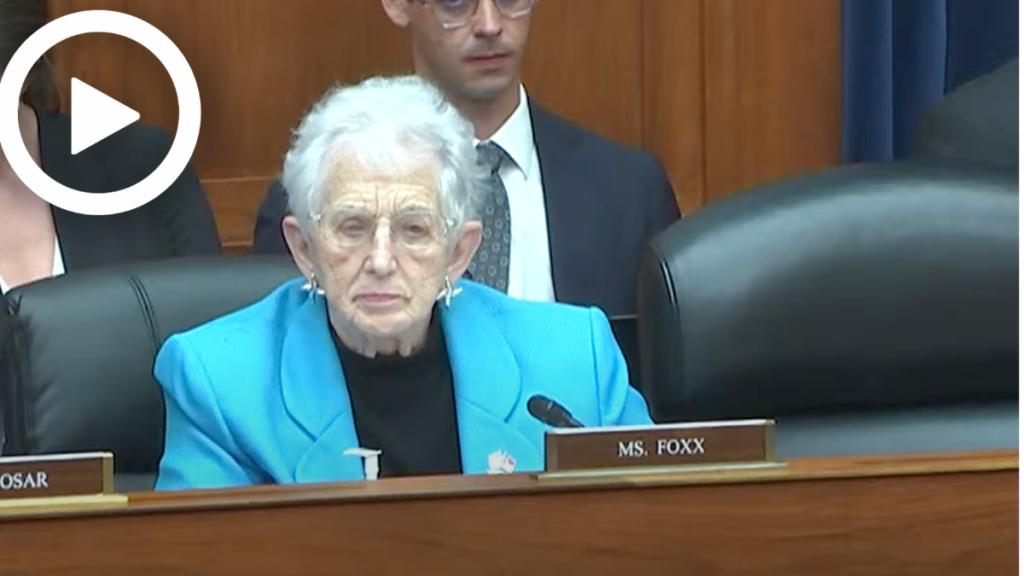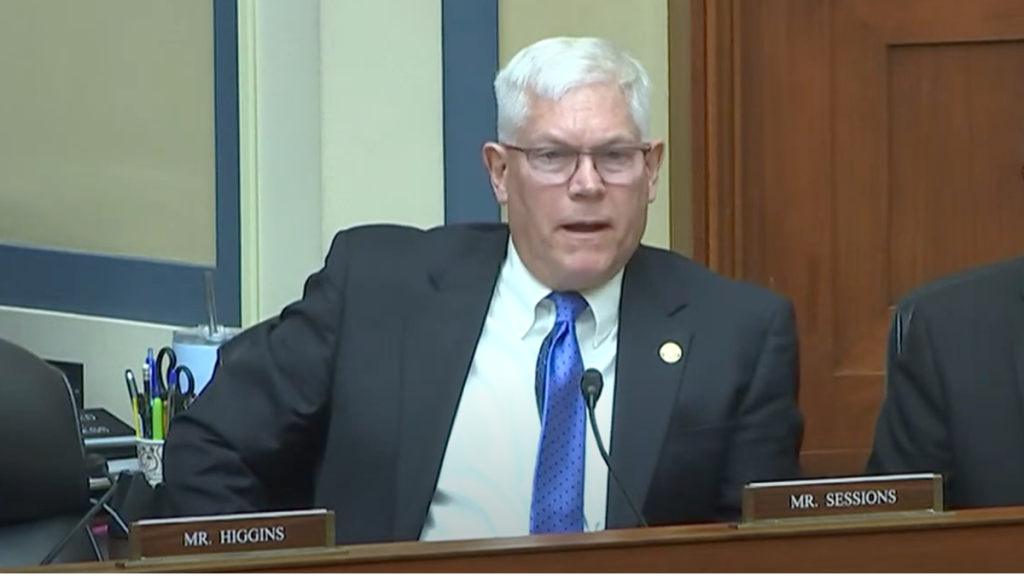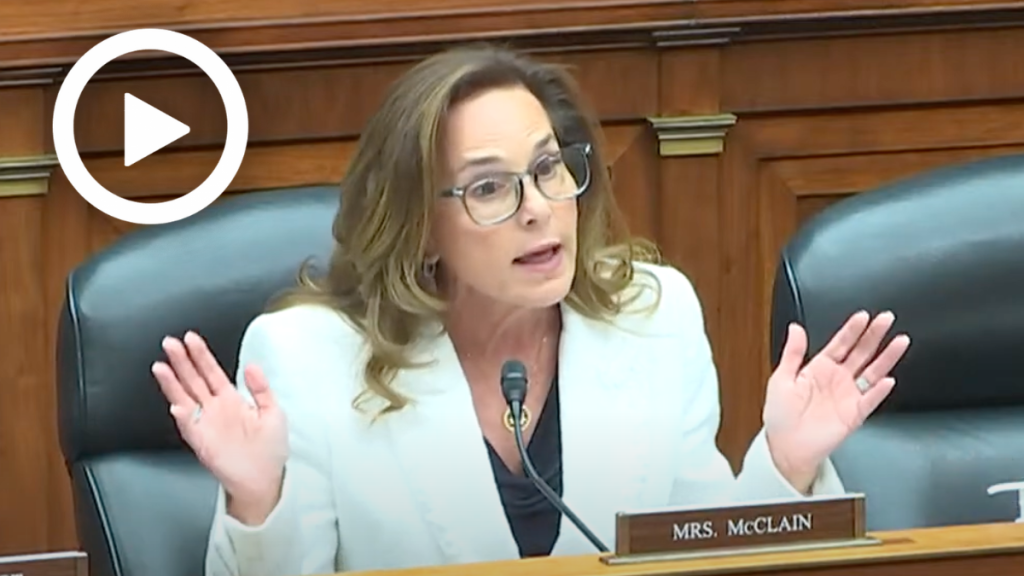Hearing Wrap Up: Federal Agencies Have Succumbed to CCP Influence and the Oversight Committee is Demanding Answers – United States House Committee on Oversight and Accountability
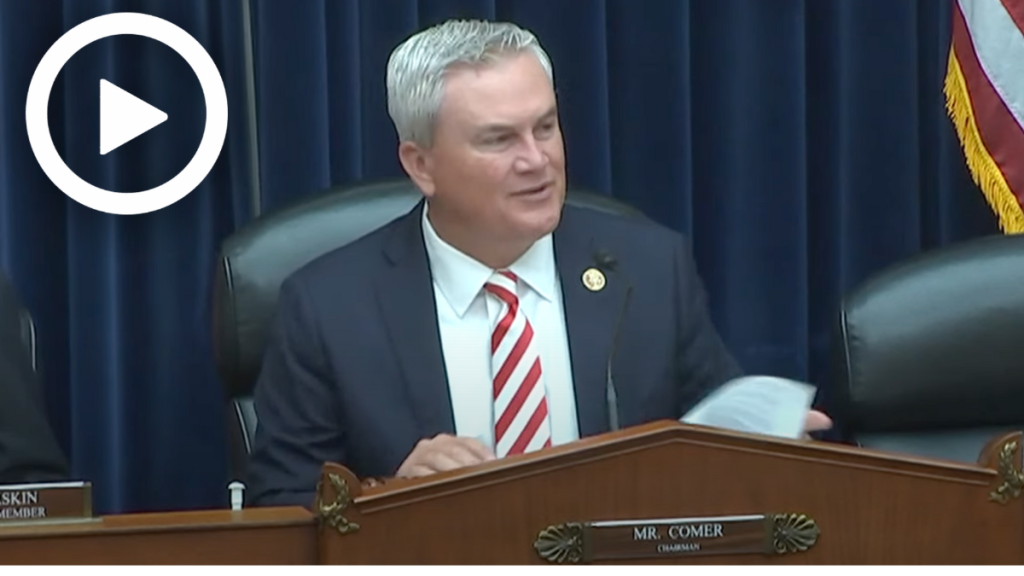
WASHINGTON – The House Committee on Oversight and Accountability held a hearing today titled, “Defending America from the Chinese Communist Party’s Political Warfare, Part II.” At the hearing, experts detailed how the Chinese Communist Party (CCP) has successfully waged an influence and infiltration campaign that jeopardizes critical U.S. industries, including America’s military readiness, technology sector, financial markets, agriculture industry, intellectual property, and education systems. The Committee’s government-wide investigation into CCP political warfare has revealed federal agencies have failed to combat China’s dangerous tactics, and too much of the Washington bureaucracy appears unwilling to address the ongoing threat. Members stressed that the lives and security of all Americans are affected, and the Committee has a responsibility to ensure the federal government is taking every action necessary to protect Americans from the CCP’s political and economic warfare while equipping Americans for a secure and prosperous future.
Key Takeaways:
Experts confirmed the Chinese Communist Party is successfully waging a war against the America by targeting, influencing, and infiltrating federal agencies and key industries, including but not limited to international financial institutions and critical American business sectors.
- Erik Bethel, Former U.S. Executive Director at the World Bank: “I have witnessed firsthand the nuanced and strategic efforts that China has employed to enhance its presence. They extend beyond mere representation to shaping global development, rules, regulations, and standards. China’s involvement in the International Telecommunication Union, for instance, impacts global telecommunications standards, with significant ramifications for technology and innovation worldwide.”
- James E. Fanell, CAPT USN (Ret.): “The U.S. is now in a new Cold War. Over three decades, the U.S. had ample time to prevent the PRC’s rise and to retard its growth, even to support the overthrow of the CCP, but it did not. Those strategic choices must be explained—why did the U.S. assist, not prevent, the rise of its peer challenger? Was it entirely the result of a masterful, protracted Political Warfare campaign by the masters of deception, the CCP?”
- Mary Kissel, Former Senior Advisor to the U.S. Secretary of State: “Xi Jinping has accelerated China’s influence operations via expansion and empowerment of the United Front Work Department and other party-state apparatus. Often, these operations seem like innocuous and even friendly exchanges. Xi Jinping’s regime regularly conducts influence operations within our borders, because we, as a democratic society, allow Party officials freedom of movement and speech that no ordinary Chinese citizen enjoys at home. Educating Americans on grey zone Chinese influence operations is also deeply important for our business community. I serve as a director of two publicly traded companies. Few American executives and directors are aware that they, like our diplomats, are prime targets of Chinese influence operations, which aim to identify prominent Americans who may now, or in the future, be convinced to aid Beijing in some form or fashion.”
Federal agencies have succumbed to CCP influence methods and the House Oversight Committee is demanding answers from agencies that do not – or will not – address the CCP’s political warfare head-on.
- Chairman James Comer (R-Ky.): “Americans outside of Washington have no difficulty identifying the CCP for what it is: an authoritarian, communist regime enslaving its own people, and seeking to destroy America, which the CCP calls its ‘chief enemy.’ The American people know that the CCP represents the greatest foreign threat to the American way of life. Despite the fact that CCP political warfare targets and threatens all Americans—why do many federal agencies fail to speak honestly to the American people about the CCP? Too many federal officials do not realize that they have fallen for CCP influence tactics—in ways that cause some officials to reflexively dismiss the truth about this communist regime. Worse, some federal officials go so far as to actually excuse the CCP’s actions.”
The House Oversight Committee will continue to expose the CCP’s political warfare tactics and work to ensure the federal government is taking every action necessary to combat CCP threats while strengthening the homeland.
- Chairman James Comer: “Much of the American government seems to have forgotten that its purpose is to promote the interests of Americans. When federal officials transparently message to the public about the CCP threat, they should also help inspire and equip Americans to strengthen their communities, innovate, and create, which will secure a strong and prosperous future for our nation.”
Member Highlights:
Chairman James Comer stated the Committee has brought federal agencies in to answer for their insufficient responses to CCP political warfare. He noted how China is actively spying on Americans, fueling the fentanyl crisis, stealing trade secrets, and threatening America’s energy security.
Chairman Comer: “There is abundant evidence that the CCP is: Spying on Americans, fueling the fentanyl crisis that is killing tens of thousands of Americans each year, stealing trade secrets to stifle American innovation, harassing Chinese students who dare to speak out against the regime, threatening our energy grid and critical infrastructure, infiltrating our food supply, and much, much more. To say that it is somehow racist or inappropriate for federal agencies to aggressively combat the CCP threat plays directly into the Party’s hands.”
In addition, Chairman Comer pointed out the Intelligence Community (IC) has turned a blind eye to CCP political warfare and has failed to adequately respond to the emerging threats of China.
Chairman Comer: “Captain Fanell you testified about the national security community’s failure to recognize and combat the CCP threat, how has the U.S. intelligence community fallen prey to influence by the CCP?”
Capt. Fanell: “In my experience in the IC, what we had was this threat deflation…we were getting information about China and we were seeing things happen, but because of this overriding engagement policy that we’ve had as a nation towards China since the opening up of China, we thought if we engage with them, that they would change their behavior at some point in time. Because that mindset permeated Washington and our institutions, the IC became ensnared with that and became less likely to make the connections and to see what was really happening. For example, we saw what happened in 2012 at Scarborough Shoal in the South China Sea, we couldn’t believe that China was going to take sovereign territory from a treaty ally, from 2013-2015 they started dredging up sand to build these seven artificial islands three of which are the size of Pearl Harbor. The IC was reluctant to call that out until it was painfully obvious. And we did that over and over and over again.”
Rep. Gary Palmer (R-Ala.) emphasized the State Department must combat China’s influence operation abroad too and discussed how the federal government needs to solidify relationships with global business partners to counter CCP political warfare tactics.
Rep. Palmer: “I want to talk about China’s debt-diplomacy. We know Pakistan, Kenya, Zambia, Sri Lanka, Laos, Mongolia, are all under tremendous pressure. We just saw what happened a few days ago in Kenya when the government tried to raise their taxes just to pay off China debt. I think Zambia and Sri Lanka defaulted on their debt too. We’re seeing this happen all over the world.”
Ms. Kissel: “The good news is U.S. investors and U.S. businesses are starting to wake up. Look at the numbers of foreign direct investment to China, it is falling off a cliff. If you go talk to our Latin American partners and our African partners, they want to do business with American companies. I believe the State Department could play a very constructive role in reaching out to these partners, partnering with U.S. businesses and saying ‘okay, where can we come in and compete and win.’ These nations don’t want Chinese workers to come in and take their jobs, they don’t want dirty money floating around their economy and have their system further corrupted. They want to do business with us.”
Rep. Scott Perry (R-Pa.) highlighted the deliberate methods employed by the CCP to infiltrate U.S. and global financial systems.
Rep. Perry: “A word of caution to our financial community is be aware of who you’re dealing with. I find it objectionable also, that Chinese companies listed in the United States, don’t file proper Public Company Accounting Oversight Board accounting standards, how is that possible? How does the CCP use its power to infiltrate our financial systems to its advantage and to our disadvantage?”
Mr. Bethel: “Where do I begin? We have a free and open system and our financial managers, hedge fund managers, wall street professionals have an obligation. They have a fiduciary and a moral obligation. The challenge that we have is to tell them you cannot invest in China, because they will say ‘don’t blame the player, blame the game.’ That is dangerous. Now what I find very ironic about the situation is that those same players that are quadrupling down on ESG, are also quadrupling down on China.”
Rep. Virginia Foxx (R-N.C.) outlined how China circumvents tariffs and prioritizes harmful business practices that aim to hurt and influence American industries.
Rep. Foxx: “We’ve heard that many Chinese companies exploit the tariff exemption to avoid tariff inspections and continue exporting goods from the Xinjiang region that are prohibited under the forced labor prevention act. Mr. Bethel can you speak to how this exemption is being exploited by the CCP?”
Mr. Bethel: “To your point, it is very easy for Chinese companies to circumvent the anti-dumping and anti-forced labor bill by simply going to other countries. If China can export goods and materials to Mexico or a CAFTA country, and Mexico can assemble them, they can get them into the U.S. through NAFTA. I think we should be very aware of the end destination and the ultimate origin of where the goods came from.”
Rep. Pete Sessions (R-Texas) broke down how the CCP is actively purchasing swathes of land, including farmland, inside the United States to exert influence near U.S. military bases and control key resources.
Rep. Sessions: “Chinese investment in U.S. land and agriculture grew to approximately 40 million acres in 2021 according to a Government Accountability Office study. We increasingly find out that Chin is not only after food, but after land that is near important military installations. Does this concern you?”
Capt. Fanell: “The threat from the Chinese in terms of what they are acquiring in the U.S. in and its close proximity to our military installations is very concerning. As was the spy balloon that flew over our country and collected data over critical U.S. military installations. We need to be very aware of where they are at and what they are doing.”
Mr. Bethel: “And it’s not just in the U.S., in Argentina, China has a military base with satellites that can track hypersonic weapons. This isn’t fearmongering, this is reality. In Argentina they are building a dual use port, and they are going to land a fiberoptic cable to Antarctica which can be used as a sensor to track U.S. submarines. In Panama, China owns container terminals on both sides of the canal. I think it’s not just in the United States, but China is encircling us, and we need to wake up.”
Rep. Lisa McClain (R-Mich.) also expressed serious concerns over the CCP’s efforts to acquire land and develop projects dangerously close to sensitive U.S. sites. She concluded that the federal government needs to get serious about these CCP threats.
Rep. McClain: “We in Michigan have the Gotion plant, that is a very sensitive topic, it is being built close to Ferris State University, which was recently given an accreditation for its information and security intelligence system program. Michigan also has a military facility that is actively training Taiwanese soldiers to combat China in the event of an invasion. The Gotion plant is being constructed just miles from this facility. I’m not much for coincidence. We have a Chinese owned company, and the only spot they can figure out that is feasible for them to build at is next to University and next to a military base?”
Read More:
Related
Painesville American Legion post plans July 20 family fun day
American Legion Post 336 in Painesville is planning a July 20 family fun day at its 60 Chester St. post with remembrance ceremonies, food, giveaways, live music
Turkish-American business meeting highlights CANiK’s role in defense cooperation
During a meeting hosted by the Turkish American Business Council (TAIK) and the American Turkish Business Development Council (ATBR) in Washington, Turkish
Growth in core business lines produces improved profits for BNY
This is a developing story. Please check back here for updates. BNY Mellon grew its core custody and wealth management businesses while tamping down operating
